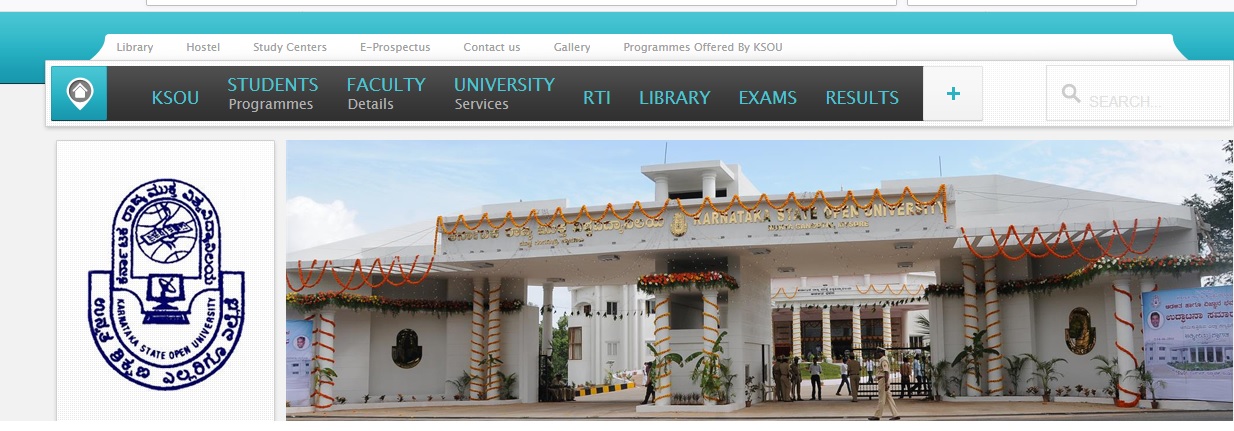Mapos11 Western Political Thought M.A Question Paper Model : ksoukarnataka.com
College : Karnataka State Open University
Degree : M.A
Department : Political Science
Year : I
Subject :Mapos11 Western Political Thought
Document type : Model Question Paper
Website : ksoukarnataka.com
Download Model/ Sample Question Papers :https://www.pdfquestion.in/uploads/ksoukarnataka.com/6500-MAPOS11%20-%20WESTERN%20POLITICAL%20THOUGHT.docx
KSOU Western Political Thought Model Question Paper
(I YEAR) (M.A_POLITICAL SCIENCE)
Mapos11
TIME : 03 HOURS
MAX.MARKS : 90
Related : Karnataka State Open University Mapos11 Western Political Thought M.A Question Paper Model : www.pdfquestion.in/6500.html
GROUP A
Q.1 Analyse Aristotle’s classification of Government.
Q.2 “Machiavelli’s advice to the price was solely
guided by reasons of state”. Elucidate. (15)
Q.3 Discuss the nature of Greek Political Thought.
Q.4 Describe the importance of Roman Political Thought.
Q.5 Critically examine Plato’s concept of Philosopher-king
GROUP B
Q.6 Discuss John Locke’s theory of social contract. (10)
Q.7 St. Augustine’s defence of the church laid the foundation
for church v/s state controversy. Discuss. (10)
Q.8 Examine the views of Polybius on the cyclic theory of Government.
Q.9 Discuss Cicero’s concept of Natural Law. (10)
Q.10 “J.S. Mill is a champion of individual Liberty” comment. (10)
Q.11 Explain Lenin’s views on democracy. (05)
Q.12 Evaluate Burke’s criticism of the French Revolution. (05)
Q.13 Discuss the meaning and features of feudalism. (05)
Q.14 Write a note on Green concept of Political obligation. (05)
Q.15 Analyse briefly Marx’s views on class struggle.

GROUP C
Q.6 Discuss John Locke’s theory of social contract. (10)
Q.7 St. Augustine’s defence of the church laid the foundation
Q.8 Examine the views of Polybius on the cyclic theory of Government.
Q.9 Discuss Cicero’s concept of Natural Law. (10)
Q.11 Explain Lenin’s views on democracy. (05)
Q.12 Evaluate Burke’s criticism of the French Revolution. (05)
Q.13 Discuss the meaning and features of feudalism. (05)
Q.14 Write a note on Green concept of Political obligation. (05)
Q.15 Analyse briefly Marx’s views on class struggle. (05)
Syllabus
BLOCK 1: Introduction
UNIT 1: Nature, Characteristics and Importance
1.0 Objectives
1.1 Introduction
1.2 Concepts of W.P.T.: “Western “Political Thought”
1.3 Origins and Importance of Political Life
1.4 Origins and Importance of Political Thought
1.5 Importance of Greek Political Life and Thought to
1.6 Nature and Characteristics of W.P.T.
1.7 Importance of Western Political Thought
1.8 Let us sum up
1.9 Key words
1.10 Some useful Book
1.11 Answers to Check Your Progress Exercises
UNIT 2: Plato-Life-Works-Theory of Justic-Ideal State
2.0 Objectives
2.1 Introduction
2.2 Plato’s Life
2.3 Plato’s Works
2.4 Plato’s Theory of Justice
2.5 Plato’s Theory of Ideal State
2.5.1 Its background
2.5.2 Its Literature
2.5.3 Its Implications
2.6 Let us sum up
2.7 Key words
2.8 Some useful books
2.9 Answers to check your progress
UNIT 3: (Plato’s View on) Education and Communism
3.0 Objectives
3.1 Introduction
3.2 Plato’s views on Education
3.3 Importance of Education to Plato’s political philosophy.
3.4 Background and basis of Plato’s Scheme of Education
3.5 Nature and Content of Plato’s Education System
3.6 An Assessment
3.7 Plato’s Theory of Communism
3.7.1 Introduction
3.7.2 Nature and Purpose
3.7.3 An Assessment
3.8 Let us sum up
3.9 Key words
3.10 Some useful Books
3.11 Answers to check your progress Exercises
UNIT 4: Aristotle – Life, Works, His views On State, On Family.
4.0 Objectives
4.1 Introduction
4.2 Life
4.3 Works
4.4 His views on State
4.4.1 On Nature of State
4.4.2 On Law
4.4.3 On Constitution
4.4.4 On Government
4.5 His Views on Family
4.6 Let us sum up
4.7 Key words
4.8 Some useful Books
4.9 Answers to check your progress Exercises
UNIT 5: Aristotle on Citizenship – Slavery – Property – Best State – Theory of
Revolution – Classification of Governments
5.0 Objectives
5.1 Introduction
5.2 Citizenship
5.3 Slavery
5.4 Property
5.5 Best State
5.6 Theory of Revolution
5.7 Classification of Governments
5.8 Let us sum up
5.9 Key Words
5.10 Some Useful Books
5.11 Answer to check Your Progress
UNIT 6: Greek Contributions to Political Thought
6.0 Objectives
6.1 Introduction
6.2 Pioneering Role of Greek in the Political Life and Thought of Manking
6.3 The Nature of Greek Political Life and Institutions
6.4 Polities and Government of Sparta
6.5 Politics and Government of Athens
6.6 The Nature and Scope of Greek Political Thought
6.7 The Greek Contribution to Political Thought and Agreement
6.8 Let us sum up
6.9 Key words
6.10 Some useful Books
6.11 Answer to check your Progress
UNIT 7: Epicureans and Cynic
7.0 Objectives
7.1 Introduction
7.2 The Background and Nature of the Schools of Post-Aristotelian Political
Thought of Greece.
7.3 Epicureans
7.4 Cynics
7.5 Let us sum up
7.6 Key words
7.7 Some useful books
7.8 Answers to check your progress